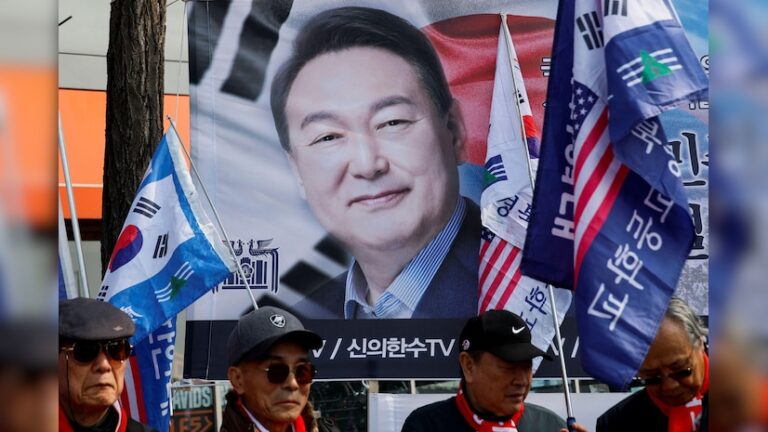South Korea’s Constitutional Court officially removed President Yoon Suk Yeol from office, bringing an end to months of political uncertainty after his controversial declaration of martial law in December. The ruling, delivered on Friday, upholds the impeachment vote passed by parliament late last year.
Yoon, whose removal takes immediate effect, must vacate the presidential residence as South Korea prepares for a new election. Under national law, a general election to select his successor must be held within 60 days.
Unanimous ruling against Yoon
A panel of eight justices unanimously ruled that Yoon’s imposition of martial law was unconstitutional. Acting Head Judge Moon Hyung-bae stated that Yoon had overstepped his authority by bypassing the formal process and using military force against lawmakers. The court found that there was no justifiable national crisis warranting such extreme measures, and that his decision infringed upon both the democratic process and citizens’ rights.
Yoon had initially been arrested in January on charges of insurrection but was released in March when a court revoked his arrest warrant. However, his charges remain, leaving him exposed to further legal consequences, including a potential life sentence.
Impeachment divides public
Public reaction to Yoon’s removal has been sharply divided. Outside the court, opposition parties and critics erupted in celebration. Meanwhile, near the presidential residence, conservative supporters gathered in protest, disappointed by the verdict.
Yoon: From star prosecutor to impeached leader
Yoon’s dramatic fall from power is particularly striking given his background. Before assuming the presidency, he was a star prosecutor and played a key role in the impeachment and imprisonment of former President Park Geun-hye in 2017. Ironically, Yoon has now met the same fate, becoming only the second South Korean president to be removed by the Constitutional Court.
Yoon secured a narrow victory in the 2022 presidential election against Democratic Party candidate Lee Jae-myung. Yoon secured 48.56 per cent of the vote, while Lee had 47.83 per cent, making it the closest election margin in South Korean history. Before taking oath on 10 May 2022, Yoon made his first major decision as president, which was to establish his office in the Ministry of National Defense building in Seoul, instead of the Blue House.
His presidency initially garnered international attention for strong ties with Washington. In 2023, he was hosted at a White House state dinner by then US President Joe Biden, where he famously sang “American Pie” in a moment that captured global media interest. However, while the event was intended to highlight US–South Korea relations, critics saw it as a distraction from pressing domestic issues.
He also became unpopular among the public by trying to pass rules such as raising the country’s maximum weekly working hours, his decisions on minimum wage, strong anti-feminist stance, and proposal to increase government control over the police—leading to protests. However, much of the criticism around Yoon was also due to his wife, Kim Keon Hee, who was accused of accepting luxury gifts.
Martial law and impeachment
Yoon’s removal follows months of political gridlock in which his administration clashed with the opposition-controlled parliament. His decision to impose martial law on 3 December 2024, which lasted only six hours before being rescinded, was seen as an attempt to shut down the National Assembly and suppress opposition lawmakers.
He justified his actions by citing political deadlock and alleged threats from what he called “anti-state forces” linked to North Korea. However, military commanders later testified that they had been ordered to physically remove lawmakers from parliament—an act widely condemned as an unconstitutional power grab.
Despite reversing his decree, Yoon was unable to recover politically. His impeachment triggered a broader political crisis, with parliament also voting to remove his prime minister and acting president.
What’s next for South Korea?
This is a critical transition period for South Korea as it prepares to go to the polls. Among the potential candidates to succeed Yoon is opposition leader Lee Jae-myung, who lost the 2022 presidential election.
Meanwhile, Yoon remains entangled in legal battles, including his insurrection trial. Though South Korea has not carried out an execution in decades, the maximum penalty for insurrection remains life imprisonment or capital punishment.
(With agency inputs)




